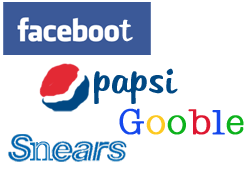
I was recently referred to a businessman by a few mutually trusted acquaintances. In total, three different people have come to me suggesting that I could help this man to grow his business. Each of these three people are involved in his personal and professional life in different ways, and each carries a different level of trust. It all got me to thinking a lot about the importance of trust, and what a role it has in business relationships, personal relationships, and how they overlap.
I thought of the trust others had placed in my work and my integrity, and I thought about ways trust is conveyed to others. How to build trust is a tricky topic, at best. There are many factors involved, and it is different to each person. I do not have all the specific answers for this, but here are a few things that came to mind for me. I hope you will enjoy the food for thought.
The First Step to Selling is Trust
The way this really came to me was when the man I was referred to set aside time to meet with me. We will be meeting for the first time tomorrow morning. I asked him how much time we could set aside to visit, because I am often long winded and wanted to know what to expect. I told him that I am not a “pitch man” and that an “elevator presentation” really does not give justice to the work I do. Ironically, a lot of my job has to do with building trust, but I do that online, through branding and delivery of consistent value. In this case, I don’t have a lot of time.
He is a bit cramped for time, so I thought of ways I could present the most important facts right upfront. I considered the specific facts, figures, and projections I could make for marketing his business better. I thought of the “silver bullet” to how I can bring him success with his online marketing. I guess I could just give him the facts, and maybe he would trust those facts … real facts, real numbers, real proof. You can see why I am not a pitch man, right? Yes, I agree … I am not a salesman. He has probably heard all of that before, or if he did the right research, he could certainly ascertain facts, figures, and proof of the things I would tell him.
Once I got to thinking a little deeper about what this man really wants to hear and believe is me. If I do not have his trust, nothing I say will matter … even the best information will be pointless. I could prove how much I know about the Internet, and how I create great visibility to a company. I could show him big profit gains by having a better marketing message. I have that proof on my side, but if I relied on proof alone, it will just fly right on by and at the end of the meeting, we will have both wasted our time. So the challenge is really in how to earn just enough of his trust that he will want to know more … and believe it once I do give him the facts.
Building Trust in an Distrusting World
I started thinking about factors of building trust online. We only have seconds to earn that little bit of trust that makes people want to know more … and believe in us. If we get just a tiny piece of their trust … enough to want to know more, we may get somewhere. Otherwise, we are shot down and we have nothing to show for it. On the Internet, that generally comes with a nice professional looking website, but why? If somebody sees a great website, it is less likely that they wasted their time and money just to throw it all away by trying to rip you off. It conveys some sense of authority.
When I considered this in the offline world, it didn’t really translate so well. Sure, we know that the numbers prove that good looking people earn more money. That is true, but being good looking does not break the trust barrier. There has to be more!
Rapport: Finding Common Threads
I thought of things I know about this man. I guess we could talk about cigars. He likes cigars, too. People like people with common interests. Maybe we could talk about my auto racing … everybody likes fast cars, right? Here is in-car video of me qualifying 7th of 77 at Road America with a top speed of around 170 miles per hour … who wouldn’t like that?! No, this is going nowhere. Rapport, or finding common threads is fine. It can make somebody feel a little more comfortable, but it still does not fill the trust gap. What is the answer? I really want to know.
Honesty and Sincerity: If You Mean it They Can Tell
This is something I guess I have always really tried hard to do. I mean, if you could see the look on my face, you would really know that I mean what I say. I have always been one of those guys who will tell people my sincere thoughts over and above telling them just what they want to hear. I am simply not a schmoozer, and I have always felt like my sincerity and willingness to polarize an audience with what I really think and feel has been an asset to me. Being honest even when it is hard is something I think my father spanked into me at a very young age, and I have been very successful as a result of honesty. It has also caused a few hardships, but it is overall my greatest gift. Some people have a good gauge for honesty, but some do not, so it still does not fill the trust gap. What’s next? There has to be something … some good answer that will make the big difference in trust.
Time and Familiarity Builds Trust … You Trust Grandma, Right?
Maybe grandma is not a perfect example for you, but in general, time and familiarity builds trust. I trust my grandmother implicitly. Over time, people observe others actions and intentions, and with experience, they learn whether they can trust somebody. Time and familiarity are huge factors in trust, but in business, we often only have a moment. Busy business people often do not have time to build trust, either from the buyers’ perspective, or the sellers’ perspective. I have put off sales representatives for over a year before. In fact, one of my largest suppliers took over a year to earn my trust, but I have been a large client to them for over eight years now. Today, that is unlikely to happen, because postponing good business decisions during a recession can sink a company fast. Besides, how many companies will really take the initiative to build trust with you the way this sales rep who called me once a week for a year did?
Referrals Convey Trust
I have written about the value of referrals, and how they can help a business. They shorten the trust gap, because when somebody you trust vouches for somebody else, some of the trust is conveyed. In my case, it seems that about every time I give a business referral, I get a call from the person I referred to say thank you. I guess it happens for two reasons. I am selective, and before I will refer somebody to another business acquaintance or friend, I want to know that they are a good match. When I give a referral, I will convey a huge lot of my influence to be sure that the two parties (referral and referred) will do business together. I almost find myself a bit offended if I give a whole-heartedly earnest referral to somebody and they go elsewhere. It is because I gave a huge piece of my trust, and when my trust is wasted, I don’t like it. I don’t like it one bit.
I have a large collection of reference letters and kind words people have written about me over the years. I could give him a nice leather bound copy of reference letters to show I am trustworthy, but even that is not a perfect answer. There is still more to it than just this … a lot more.
What About the Jaded?
I told my wife I was thinking about and writing about trust. I asked her if she trusts me. I already knew the answer. She clearly trusts me like none other. She trusts me as a husband, father, and provider. Then I asked her how to build trust, and she said “it depends on how jaded the person is.” That makes sense, and it reminded me of something I wrote in one of my books, “Living in the Storm” in the chapter titled “Wins and Losses of Cynicism”. Perhaps we just can’t reach everybody, and some people will just distrust everything. It has to do with the individual’s experiences, and sometimes their own trustworthiness and intentions. It is a lot harder to trust somebody if you have been jaded, or do not feel trustworthy.
A Summary of Trust
I cannot tell you in a single blog article what it takes to build trust. I know, that would be great if I could. One thing I can tell you is that in my job as an Internet marketing consultant, if you are not doing things to convey trust among your marketplace, you are not looking far enough ahead. Trust is a key factor in doing business, online or offline, and the sooner you start, the better.
I did not come up with all the answers for my meeting tomorrow, but I know that his confidence and trust in me will play a vital role. I hope that my knowledge, history, integrity, and the trust conveyed by others will help.
What do you think? I would enjoy hearing your thoughts on trust. If you are a subscriber to my blog, why did you trust my opinions enough to subscribe? If you are a regular visitor, why do you come back? Does trust play a role in that? My guess is yes.


